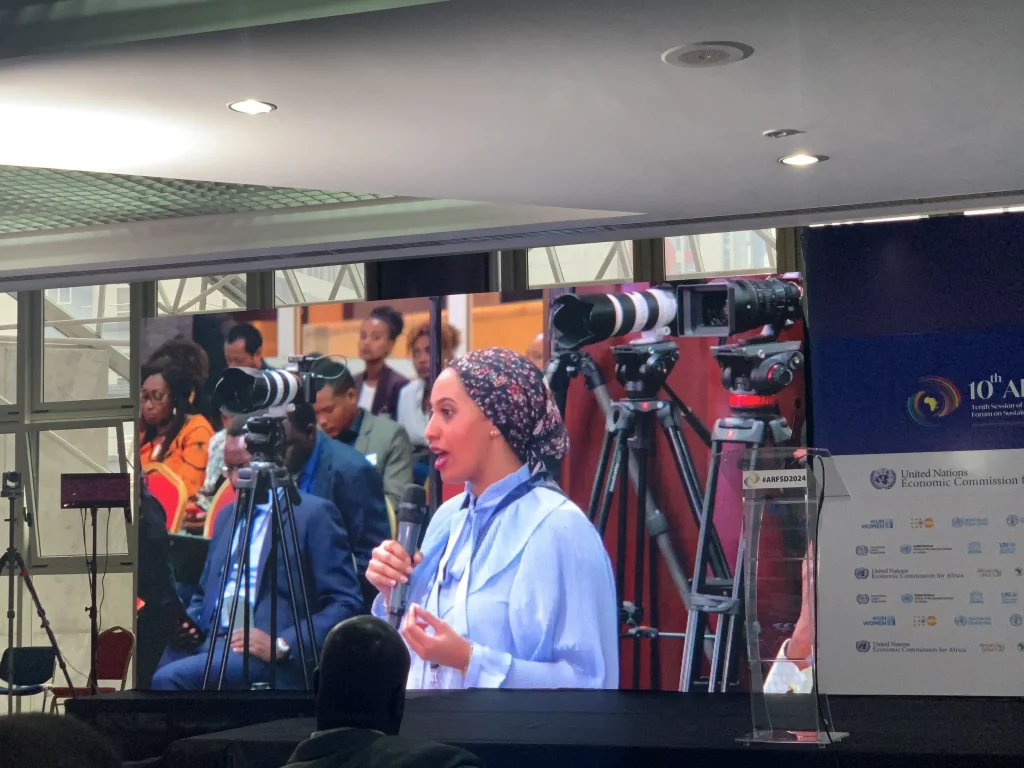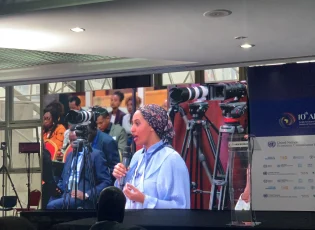Maat Foundation for Peace, Development and Human Rights held a symposium entitled (The human rights situation in Ethiopia )
This symposium comes on the sidelines of the review of Ethiopia's human rights file at the 33rd session of the Universal Periodic Review and within the framework of Maat Foundation's interest in protecting human rights.
The symposium discussed many human rights issues in Ethiopia, the most important of which was the amendment of the declaration of combating terrorism, abolishing the state of emergency, ending the conflict with neighboring countries, rights of women and civil and political rights (freedom of opinion and expression and the right to peaceful assembly), children's rights, combating human trafficking, combating corruption, and finally cooperating with international mechanisms to protect Human rights, and the seminar was moderated by Mr. Ahmed Saeed, member of the International Alliance for Peace and Development.
Mr. Isaw Tika, a member of the Peacebuilding Group from Ethiopia, also participated in the symposium, who spoke about the challenges facing Ethiopia that affect the human rights situation locally, including the escalation of ethnic violence between nationalities and ethnicities in the country, causing the displacement and asylum of about 1.8 million Ethiopians in addition to the continuation of The dispute between the central government and some armed fronts threatening the ongoing reforms.
Tika said that the biggest challenge is the Ethiopian people's acceptance of the reform policy and its support from all sects.
Ayman Aqil, President of the Maat Foundation for Peace, who stressed in his speech the developments in Ethiopia in the field of human rights after Abi Ahmed assumed the presidency of the government, especially with regard to amending the provisions of the anti-terrorism declaration and the peace agreement with the National Front rebels, lifting the state of emergency and signing the joint declaration for peace and cooperation. With Eritrea and increasing women's representation in government.
Aqeel concluded his speech by presenting a set of recommendations to the Ethiopian government to improve its human rights conditions, and the most important recommendations were:
1- Activating the amendments to the Declaration on Combating Terrorism to ensure that it is not used as a pretext for combating terrorism
2- Protecting Ethiopian women from harmful practices.
3- Reducing restrictions on freedom of assembly and association
4- Conducting serious investigations about the use of torture in prisons and compensating those affected
5- Working to provide a safe environment for children against kidnapping and homelessness
6- Activating the penal code against human trafficking
It is worth noting that the Maat Foundation holds a consultative status at the United Nations and is currently the North African Coordinator of the Group of Major African Organizations of the High Level Policy Forum, as well as a member of the General Assembly of the African Eco-Soc (Economic, Social and Cultural Council) of the African Union















